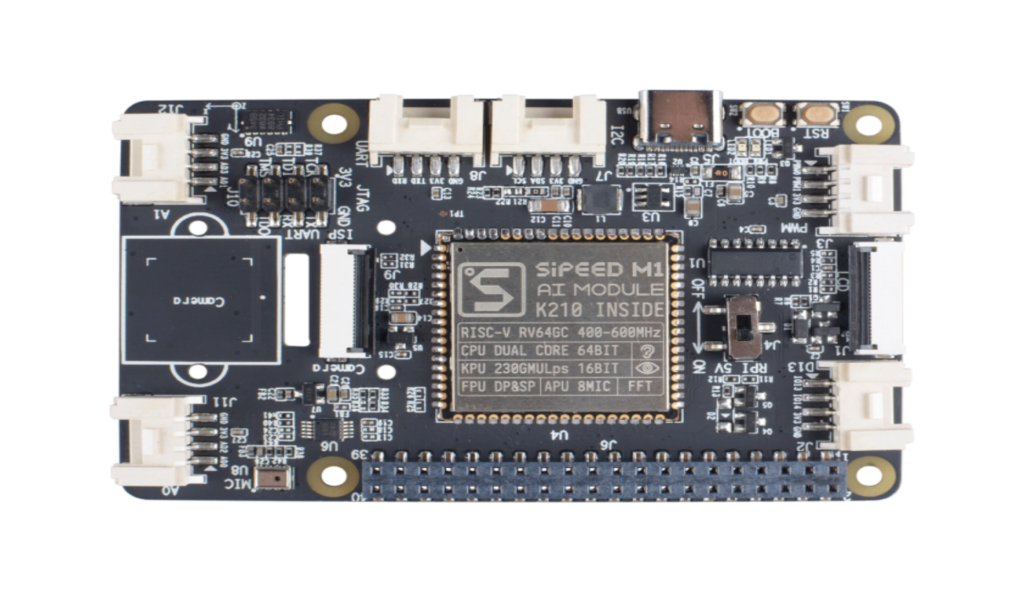Hardware-based AI (Artificial Intelligence) systems are now a reality. Because today’s AI needs to process data on a massive scale in real time and it has an utterly computer-intensive workload, AI isn’t achieved with the same kind of hardware as yesterday’s computer programs did. Firms and researchers have found that step up to high-speed precision, energy efficient performance, virtually all these goals require a AI hardware; this article looks at what exactly AI Hardware Development means, why it is important, latest examples and how it shapes future technical possibilities.
What is AI Hardware Development?
AI hardware development is the design and engineering of physical systems, such as processors, accelerators and edge devices. These systems are specifically optimized to execute AI algorithms and build machine-learning models. AI hardware does not resemble general-purpose CPUs.
Some of the most common AI hardware components include:
Graphics Processing Units (GPUs)–popular since their inception for deep learning
tasks that require parallel computations to be performed in each layer Inference chips manufactured by Google Machine Learning
This complements the general solutions TerraSal.
The Project on Neural Networks That is Supported by the NSF is led by Google and is an extremely large and computation intense project also.
Field Programmable Gate Arrays (FPGAs)–this reconfigurable hardware is especially suitable for AI inferencing tasks.
Application-Specific Integrated Circuits (ASICs)–custom-made designs that provide high efficiency for specific AI applications.
AI Edge Devices–hardware aimed at real-time inference at the edge, makes possible IoT and investments in embedded AI systems.
Why the Development of AI Hardware is so Important
AI software algorithms form but part of an overall AI solution. The core of such solutions is the hardware that processes these algorithms. Without powerful hardware capable of processing large data sets and complex models swiftly, adoption of AI systems will be slowed down to a crawl.
AI hardware development is important as shown here:
Boost to Performance
AI-specific hardware accelerates computation, so models train faster and run more efficiently.
Energy Efficiency
Chips specially designed for AI use less power than general-purpose processors do, a key consideration for spreading AI into mobile and other edge devices.
Real-Time Processing
AI applications like autonomous driving, robotics and augmented reality call for decisions in milliseconds—something on which only dedicated AI hardware can deliver.
Trends in AI Hardware Development
AI@Edge
Data is no longer necessarily transferred to and processed in the cloud. Instead, edge processing on IoT (Internet of Things) sensors, drones and smartphones is increasing.
Neuromorphic Computing
Inspired by the human brain, neuromorphic chips are being designed and tested for superior capability in image processing and other artificial intelligence tasks.
Quantum Computing for AI
Although still in its early stages, quantum computing is being looked at. This powerful new type of hardware has the potential to speed up AI applications by solving optimization problems much faster than traditional computers.
Custom ASIC Development
Giant Internet firms such as Apple, Google, Amazon and Ali are developing their own Artificial Intelligence chips tailored to their platforms.
Applications of AI Hardware Development
The significance of AI hardware is far more profound than traditional hardware. Some examples follow:
Health care: AI-enabled equipment for medical imaging, predictive diagnostics, and robotic surgery.
Automotive: Non-remote vehicles depend on AI chips to tell them what objects they see and how to navigate or stay safe.
Finance: Fraud detection and algorithmic trading are driven by high-speed AI hardware.
Retail: AI-powered check-out systems, personalized recommendations, and inventory control.
Manufacturing: Preventive maintenance, robots, process automation.
The Road Ahead for AI hardware development
In the future, AI hardware development will continue to go beyond the current technical boundaries and carry Modern smart chips develop aim:
to create systems that are smaller and more powerful than ever before.
greater integration of AI hardware in the internet of things (IOT) environment.
Hybrid architectures that combine CPUs, GPUs and FPGAs for maximum efficiency.
More emphasis on security features in AI hardware to protect against the threat of cyber-attacks.
FAQs concerning the Development of AI Hardware
Q1: What is the distinction between AI hardware and AI software?
AI software consists of algorithms and models that manipulate data and make decisions, whereas AI hardware involves physical devices designed (chips, processors, and servers) to carry out these algorithms efficiently.
Q2: Why are GPUs Important in AI Hardware Development?
GPUs are optimized for parallel processing, making them ideally suited for deep learning tasks requiring massive numbers of data to be manipulated simultaneously.
Q3: Which industries will benefit most from AI hardware?
With AI hardware easily being applied across a wide range of industries, it is those industries such as healthcare, automotive, finance, retail and manufacturing that can most benefit from its ability to convert both diagnosis and control into applications.
Q4: What is edge AI hardware?
Edge AI hardware is where devices process AI tasks locally, without relying on cloud computing. This reduces latency and improves thereby security-in the Internet of Things era as well as real-time applications.
conclusion
The cornerstone of modern artificial intelligence, AI hardware development provides speed efficiency and scalability necessary to bring advanced AI applications into being. As industries call for smarter, faster and more energy-efficient systems, innovation in AI hardware will surely keep marching on.

